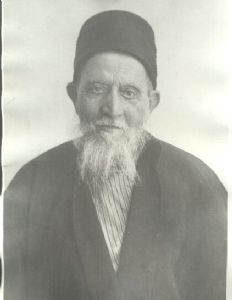A Short Tribute
Hacham Ben Zion Nissim Pardess, was born to Sarah-Markada, daughter of Hacham Vidal Cuenca, and Hacham Eliyahu Pardess on 27 Kislev 5622 (1862) in Jerusalem. He learned Torah from his father and other Jerusalem, eventually joining Beit El kabbalist yeshiva’s sages, as had his father.
Hacham Ben Zion Nissim Pardess was sent as a rabbinic emissary to the Jewish communities of the Maghreb. When he returned to Jerusalem, he served as rabbi of the Istanbulis synagogue in Jerusalem's Old City and headed its yeshiva; he also officiated at the Nachlaot neighborhood's Taranto synagogue. His sermons were highly appreciated by the public and he was adored everywhere; he had a pleasant voice and was a paytan who composed piyutim on Israel's redemption.
Hacham Ben Zion Nissim Pardess married Mazal Oro, Hacham Abraham Cassuto's daughter, and they had three daughters and a son. His son, Hacham Eliyahu Pardess, was eventually appointed Chief Rabbi of Jerusalem. During his later years, Hacham Ben Zion Pardess was part of the Magen David group of sages that studied at the Mercaz HaRav yeshiva in Jerusalem. In keeping with the kabbalist custom, he left a detailed will that dealt mainly with his burial and memorial ceremony.
Hacham Ben Zion Nissim Pardess passed away on 1 Adar Aleph, 5703 (1943) and was buried in Jerusalem. His book, Pardess HaTorah, was written in two volumes and includes sermons on the Torah, Jewish festivals, on the books Ecclesiastes, Proverbs and Psalms and more.
